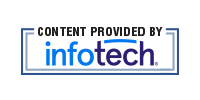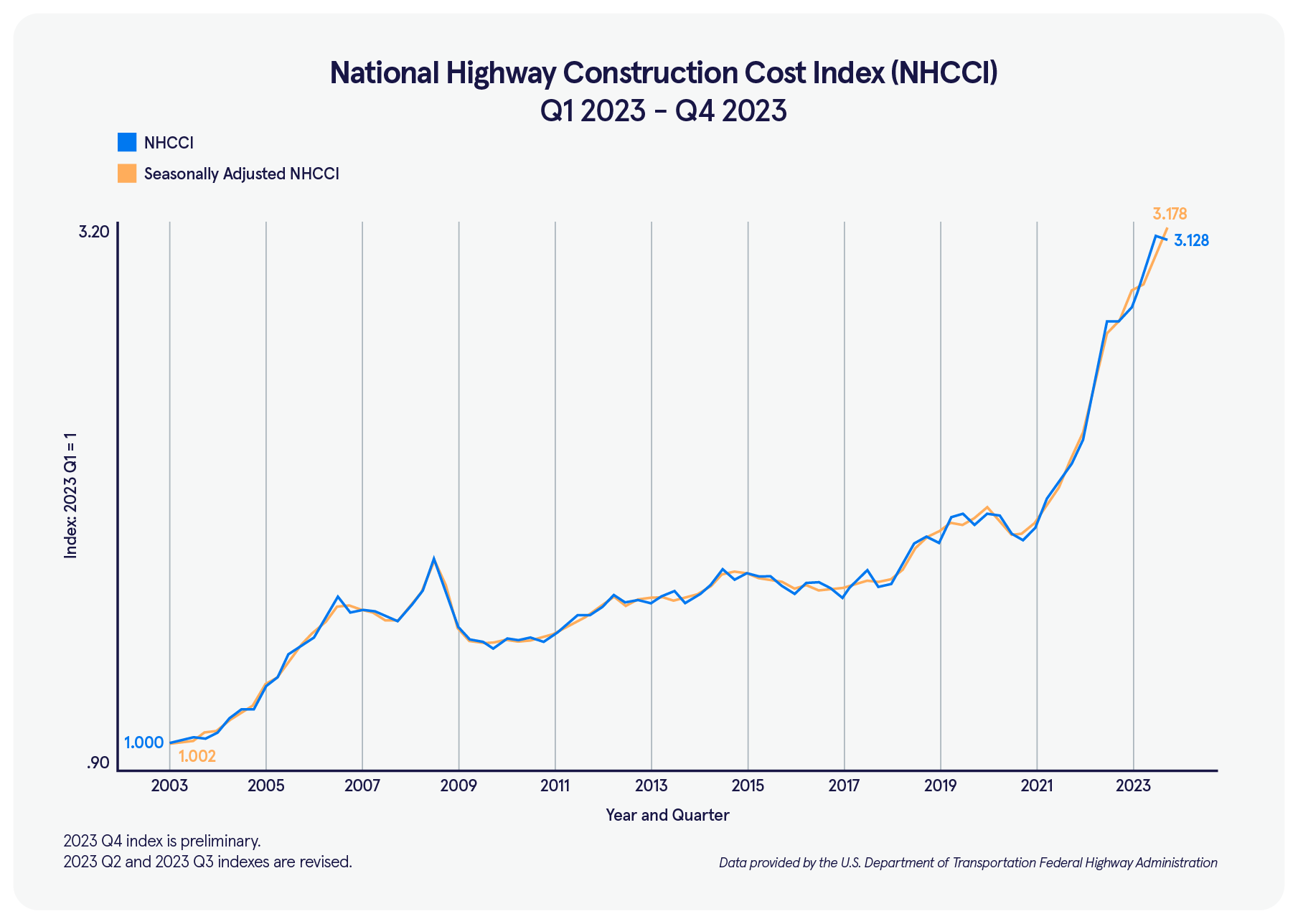
It has been a little over two and a half years since the passage of the bipartisan Infrastructure Investment and Jobs Act (IIJA) provided a much-needed boost to the highway construction sector. In that same time, inflation has erased the boost it sought to provide.
In March, the Federal Highway Administration (FHWA) updated its quarterly index of highway construction costs. This showed that the National Highway Cost Index (NHCCI) increased by 6% in the July-September 2023 quarter over the previous April-June 2023 quarter. This was the 11th straight quarter of cost increases. The July-September 2023 NHCCI reflects a 69% increase in highway construction costs since the October-December 2020 quarter.

*Click the graph for greater detail
The damage done by inflation has been felt more heavily in the highway construction industry than across the general economy. The constant increase over these 11 quarters can largely be explained by the combination of higher asphalt and oil prices. The two biggest factors driving the quarterly increases are the price of asphalt (heavily tied to the price of crude oil), followed by the costs associated with grading and excavation (dependent on the price of diesel fuel). If you convert each quarter to what FHWA was getting for its money in October-December 2020, the contracts signed by FHWA have lost $47 billion of their buying power since that time. The IIJA has seen nearly one-fifth of its funding power lost to economic inflation. It’s still an historic bill, but the industry is not getting the bang for the buck we thought it would when it was passed.
What is the overall net impact of this loss of spending power? For Agency-Owners who have been dealing with the impacts of inflation since the pandemic, the answer is very apparent. They estimate the work, receive bids that validate the estimate, award the work, and then by the time the work is done, inflation has caused the original estimates to be way undervalued. This leads to multiple change orders, disputes, and claims. All of this is disruptive to budgets, schedules, and the overall health of an agency’s highway program and its relationships with its stakeholders.
Inflation and cost escalation are not new to our industry. History and the market dictate that prices will eventually level off and, in some cases, decrease. But navigating this period can be stressful for all stakeholders. Identifying and, more importantly, addressing challenges proactively is crucial to mitigating the impacts and stress of cost escalation on your projects.

